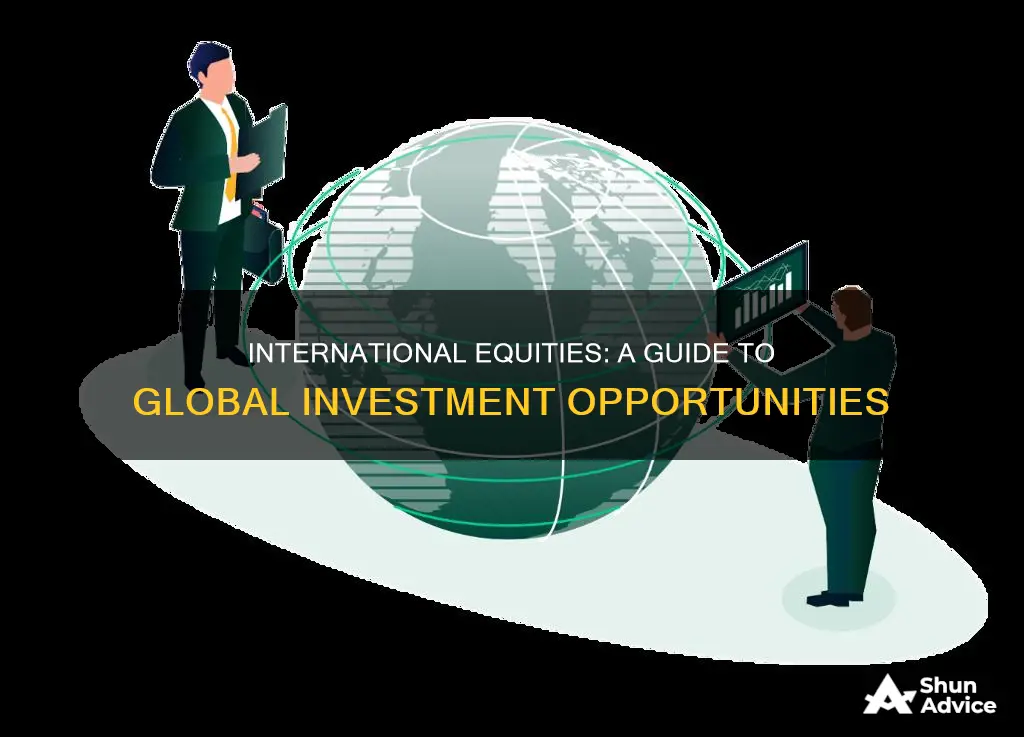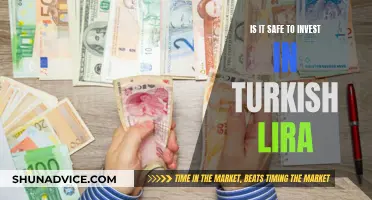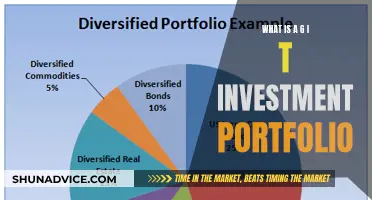
Investing in international equities can be a great way to diversify your portfolio and gain exposure to new growth opportunities outside of your domestic market. International equities are stocks purchased outside of the United States market, and they can provide access to companies in emerging markets with high growth potential. However, it's important to consider the risks, such as currency fluctuations and political instability, which can impact the value of your investments. By understanding the benefits and risks associated with international equities, you can make informed decisions about allocating a portion of your portfolio to this asset class.
| Characteristics | Values |
|---|---|
| Definition | Stocks purchased outside the United States market |
| Types | Emerging market equities, sector-based international equities, country-specific international equities, region-specific international equities |
| Benefits | Diversification, access to new growth opportunities outside the domestic market, higher returns |
| Downsides | Currency exposure, political risk, less liquidity |
| Recommended allocation | Vanguard recommends at least 20% of the overall portfolio; some experts recommend 30% or more |
| How to buy | Buy individual stocks directly on international exchanges, buy American Depository Receipts (ADRs), invest through international ETFs and/or mutual funds |
What You'll Learn

International funds vs global funds
International funds and global funds are two common investment opportunities that exist outside of the United States. They are similar in that they both provide investors with exposure to securities from all over the world, but there is a subtle difference between the two.
Global funds invest in companies and securities from all over the world, including the US. They are chosen primarily by investors who wish to diversify their portfolios to protect against country-specific risk, without excluding investments available in their own country. Global funds are a good option for investors who want to give their portfolio managers the freedom to move investments between the US and non-US markets to take advantage of shifts in relative opportunities. However, this means that investors may not know their total exposure to the US market at any given time.
International funds, on the other hand, invest in companies and securities from all over the world except the US. They are a good option for investors who want greater control over their overall investment portfolio, as they allow investors to separate investments in US markets from non-US markets. They are also a good choice for investors who want to manage their allocation risk by setting a broad asset allocation for their portfolio and then identifying funds within those asset classes.
Both types of funds provide opportunities for financial returns from foreign securities, as well as the benefits of diversification into many different markets. However, investors must be aware of the inherent currency risks of international and global funds, as well as the fact that different countries have different tax and regulatory regimes.
Exploring India's Investment Landscape: Who's Investing and Why
You may want to see also

Diversification benefits
Investing in international equities can be a great way to diversify your portfolio and access new growth opportunities. Here are some key diversification benefits to consider:
Risk Reduction
By investing in international equities, you can reduce the overall risk of your portfolio. If US stocks underperform, gains in international holdings can offset those losses and smooth out returns. A well-diversified portfolio across various countries and regions can provide a more stable investment strategy. Vanguard, for example, recommends that at least 20% of your portfolio should be invested in international stocks and bonds.
Access to Emerging Markets
International equities give you exposure to emerging markets, which often offer better growth prospects than developed markets. While these markets may have less stable economies and more volatile political landscapes, they are also experiencing rapid growth and industrialization. For example, countries like India, China, and Brazil have been attracting investors due to their large populations and potential for dramatic economic growth.
Currency Diversification
When investing in international equities, you are also effectively investing in multiple currencies. This can be advantageous if the US dollar weakens, as your investments in other currencies may appreciate and provide a hedge against currency fluctuations. However, it's important to remember that currency exchange rates can work both ways, and you may be exposed to higher currency risks in emerging markets.
Exposure to Global Trends
Investing internationally allows you to tap into global trends and benefit from the growth of companies outside the US. For example, the expansion of the global middle class, increasing productivity, and improving living standards are creating new growth opportunities worldwide. By investing in international equities, you can access companies that are well-positioned to benefit from these trends, such as those in the technology, e-commerce, and fintech sectors.
Market Cycle Timing
With an international portfolio, you can take advantage of different market cycles in various countries. For instance, if you believe US stocks and the US dollar are overvalued, you can look for investment opportunities in developing regions that are experiencing capital inflows and increased demand for commodities. This allows you to diversify your exposure and potentially benefit from different market cycles.
Understanding Management Investment Trusts: What You Need to Know
You may want to see also

Currency risk
When investing in international equities, the returns are affected by both the change in stock prices and the change in the value of the foreign currency against the investor's home currency. For example, a US investor holding stocks in Canada will see their realised return impacted by the change in Canadian stock prices and the change in the value of the Canadian dollar against the US dollar. If the Canadian dollar depreciates against the US dollar, it will result in lower returns for the US investor.
Another strategy to manage currency risk is to invest in countries with strong and rising currencies, low debt-to-GDP ratios, and stable political and economic conditions. For example, the Swiss franc and the New Zealand dollar are considered relatively safe currencies due to their stable political systems and robust export industries.
Additionally, investing globally or diversifying across geographic regions can help to mitigate currency risk. By allocating funds to various countries, investors can reduce their exposure to fluctuations in any single currency. However, it is important to note that currency risk is inherent in international investments, and it requires careful management to balance the risks and rewards.
VIE's Future: Equity Investment Needed?
You may want to see also

Geopolitical risk
Impact on Investment Value: Political instability, conflicts, and sanctions can devalue investments. For example, the conflict between Russia and Ukraine has led to international sanctions on Russia, causing economic challenges for companies operating in or dependent on that market.
Currency Fluctuations: Currency exchange rates can be volatile due to geopolitical factors. For instance, the US-China trade tensions have impacted the value of the Chinese yuan and the US dollar. Currency fluctuations affect the profits of international investments when converted back into an investor's domestic currency.
Emerging Markets Risk: Investing in emerging markets, such as India, China, or Brazil, offers growth potential but also carries higher geopolitical risks. These countries may have less stable political and economic systems, and changes in their social, political, or economic spheres can have significant repercussions for investors.
Diversification: Diversifying your portfolio across multiple countries and regions can help mitigate geopolitical risk. By investing in various markets, you reduce the impact of any single country's political events on your overall portfolio.
Country Analysis: Conduct thorough research and analysis of the geopolitical landscape in the countries you plan to invest in. Understand the social, political, and economic dynamics, including the risk of elections, policy changes, and relations with other nations.
Global Events: Monitor global events and their potential impact on your investments. For example, the conflict between Russia and Ukraine has disrupted energy markets and supply chains worldwide, affecting companies operating in multiple regions.
Information Sources: Stay informed about geopolitical developments through reliable news sources, analyst reports, and risk assessment tools. This will help you make more informed investment decisions and anticipate potential risks.
Risk Management: Develop a risk management strategy tailored to the geopolitical landscape. This may include setting stop-loss orders, diversifying across asset classes, or investing in politically stable countries to balance your portfolio.
Long-Term Perspective: Geopolitical risks can cause short-term volatility, but it's essential to maintain a long-term perspective. Some countries may offer attractive investment opportunities despite short-term political uncertainties.
Professional Advice: Consult financial advisors or experts in international investing to gain insights into geopolitical risk management. Their guidance can help you navigate the complexities of investing in different countries.
Open Architecture Investment Management: Unlocking Investment Opportunities
You may want to see also

Mutual funds and ETFs
There are a variety of options when it comes to international mutual funds and ETFs. You can choose to invest in:
- International funds, which focus solely on foreign markets, excluding the US.
- Global or world funds, which provide exposure to both US and foreign markets.
- Regional funds, which invest in a specific part of the world, such as Europe or the Pacific region.
- Developed markets funds, which focus on countries with proven economies, like Japan, France, or the UK.
- Emerging markets funds, which combine investments in countries with "developing" economies, like India, Brazil, or China.
It is also important to consider the different types of funds available, such as actively managed funds or index funds, and to research factors like minimum investment requirements, expense ratios, and performance compared to benchmarks.
- Mutual Funds: Oakmark International Small Cap Instl, Artisan International Value Investor, Fidelity Total International Index, Goldman Sachs GQG Partners International Opportunities, Vanguard Total International Stock Index Fund Admiral Shares (VTIAX), Vanguard Developed Markets Index Fund Admiral Shares (VTMGX), Fidelity International Index Fund (FSPSX), Schwab International Index Fund (SWISX).
- ETFs: Vanguard Total International Stock ETF (VXUS), iShares Core MSCI EAFE ETF (IEFA), iShares Core MSCI Emerging Markets ETF (IEMG), KraneShares CSI China Internet ETF (KWEB), Emerging Markets Internet & Ecommerce ETF (EMQQ), iShares Core MSCI Total International Stock ETF IXUS, Vanguard FTSE All-World ex-US ETF (VEU), Vanguard International Dividend Appreciation ETF (VIGI), Vanguard FTSE All-World ex-US Small Cap ETF (VSS), Vanguard FTSE Europe ETF (VGK), iShares Core MSCI Pacific ETF (IPAC), Vanguard FTSE Pacific ETF (VPL), Vanguard International Stock ETFs, Vanguard International Bond ETFs, Franklin FTSE China ETF (FLCH), Franklin FTSE Taiwan ETF (FLTW), WisdomTree China ex-State-Owned Enterprise ETF (CXSE), BNY Mellon Emerging Markets Equity ETF (BKEM), Goldman Sachs MarketBeta Emerging Markets Equity ETF (GSE), Columbia EM Core ex-China ETF (XCEM).
Angel Investing in India: Understanding the Basics
You may want to see also







